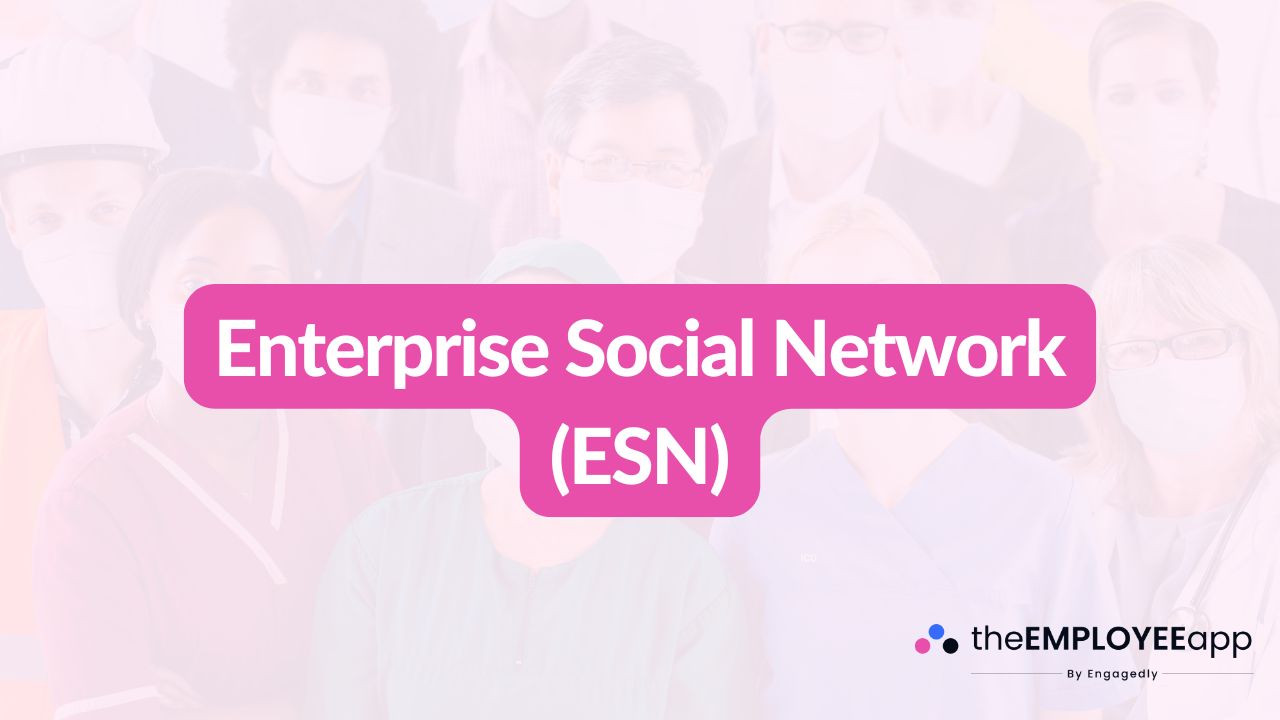
An Enterprise Social Network (ESN) is a digital platform designed to enhance communication, collaboration, and knowledge sharing within organizations. Unlike public social networks such as Facebook or LinkedIn, ESNs are private, secure environments tailored for business use. They give employees the ability to connect across teams, departments, and even geographies in real time, creating a stronger sense of community and engagement.
In today’s fast-paced and hybrid workplace, traditional communication tools like email aren’t enough. Employees want a space that feels intuitive and social while also driving business outcomes. That’s where an ESN comes in—it combines the familiarity of social media with the structure and security businesses need.
The core goal of an ESN is to break down silos and ensure information flows seamlessly across the workforce. Whether it’s a frontline worker needing updates from leadership or a project team collaborating across time zones, an ESN ensures everyone has access to the same conversation.
Some of the top reasons organizations adopt enterprise social networks include:
Improved Communication: Employees get real-time updates and leadership messages without digging through inboxes.
Employee Engagement: ESNs allow workers to comment, like, and share content—building a culture of interaction.
Knowledge Sharing: Teams can crowdsource answers, share best practices, and store resources in one place.
Collaboration: Project groups can work together asynchronously, reducing the need for endless meetings.
Recognition and Culture Building: Employees can celebrate wins, acknowledge peers, and strengthen company culture.
A modern ESN usually includes:
Newsfeeds for company-wide or team-specific updates
Groups and Communities for departments, projects, or interests
Chat and Messaging for quick conversations
File Sharing to centralize resources
Mobile Access so frontline and remote workers stay connected
Analytics and Dashboards to measure engagement and participation
The best enterprise social networks integrate directly with existing workplace tools, making adoption smooth and encouraging daily use.
Faster Information Flow
Instead of waiting for newsletters or all-hands meetings, employees get updates in real time.
Higher Engagement and Morale
Interactive features make employees feel included in the conversation, no matter their role.
Stronger Collaboration Across Levels
Leaders, managers, and employees can all interact directly, flattening hierarchies.
Retention and Culture Strengthening
Employees who feel connected and heard are more likely to stay long-term.
Productivity Boost
By reducing email overload and meeting fatigue, teams spend more time actually working.
Many companies ask whether an ESN is just another name for an intranet. While both share information, they serve different purposes. Intranets are typically static—places to store documents, policies, or announcements. ESNs, by contrast, are dynamic and interactive. They encourage two-way communication, making them more effective at driving engagement.
Consider a retail company with thousands of frontline employees. In the past, communication was slow, relying on bulletin boards or shift meetings. By implementing an enterprise social network, leadership could post updates instantly, store training materials, and recognize top performers publicly. Employees, in turn, could share feedback, ask questions, and feel like part of a larger community. The result? Higher morale, faster knowledge transfer, and stronger retention.
The rise of hybrid and deskless workforces makes enterprise social networks more critical than ever. Employees want the speed and familiarity of social media but within a secure, work-focused environment. For HR and internal communications leaders, adopting an ESN isn’t just about technology—it’s about building a connected culture where communication is transparent, inclusive, and continuous.
An Enterprise Social Network (ESN) is no longer a nice-to-have—it’s a cornerstone of effective workplace communication and engagement. By combining the best aspects of social interaction with business security and productivity, ESNs empower employees to stay connected, informed, and engaged. For organizations aiming to thrive in the modern workplace, adopting an ESN is a smart investment in people and culture.
